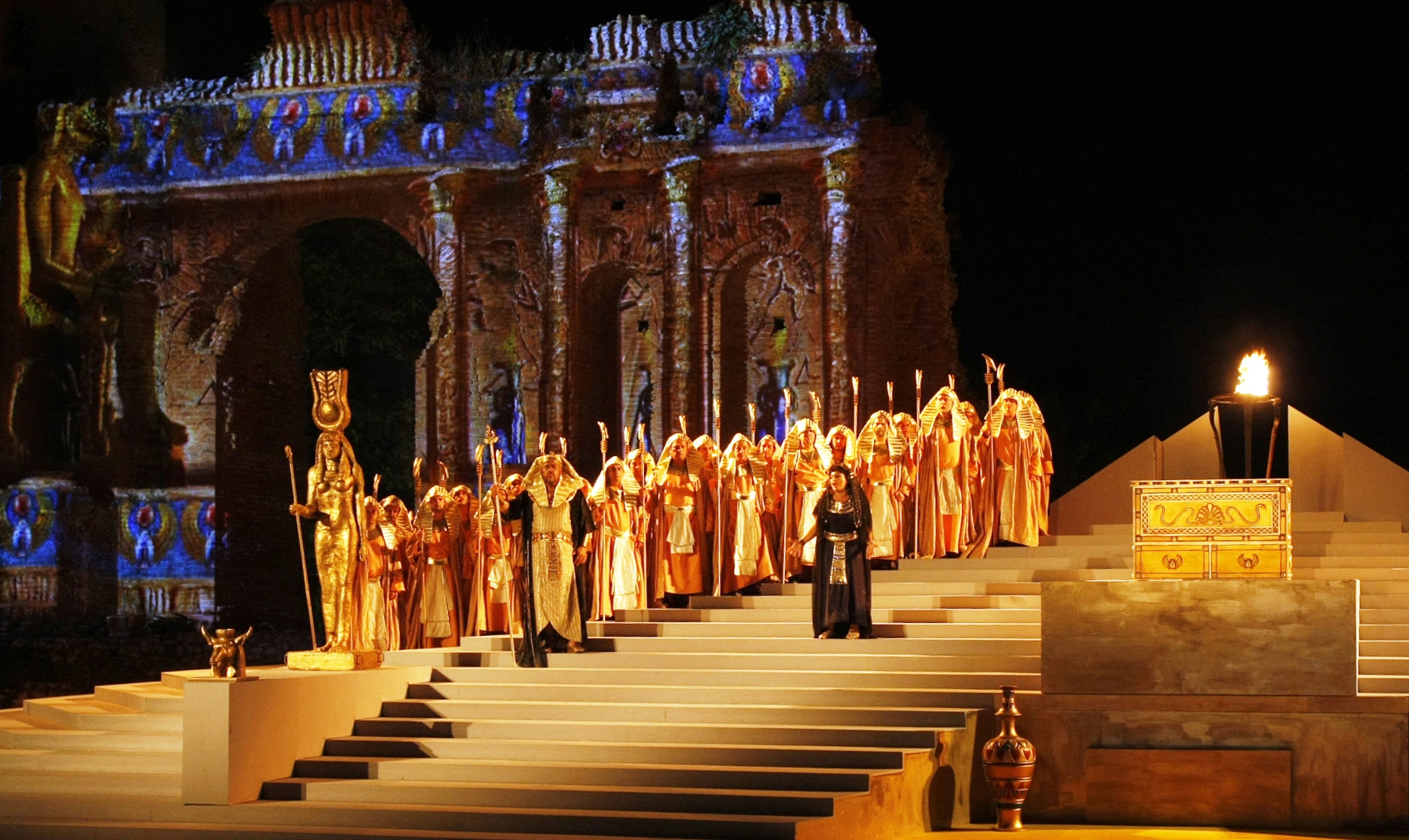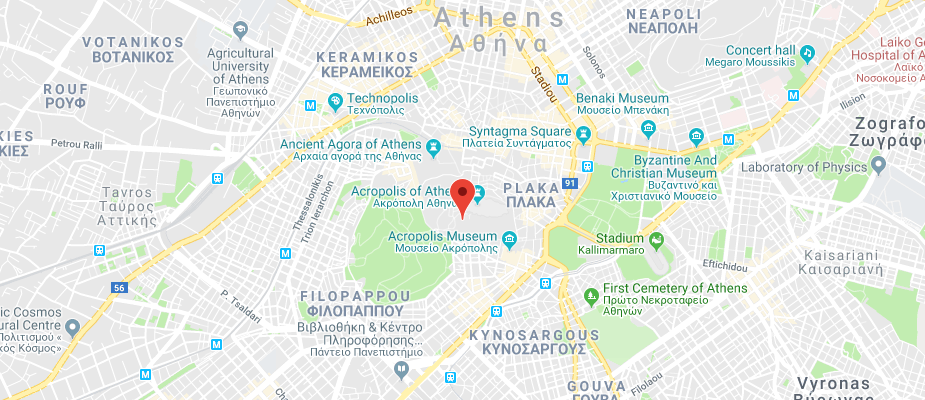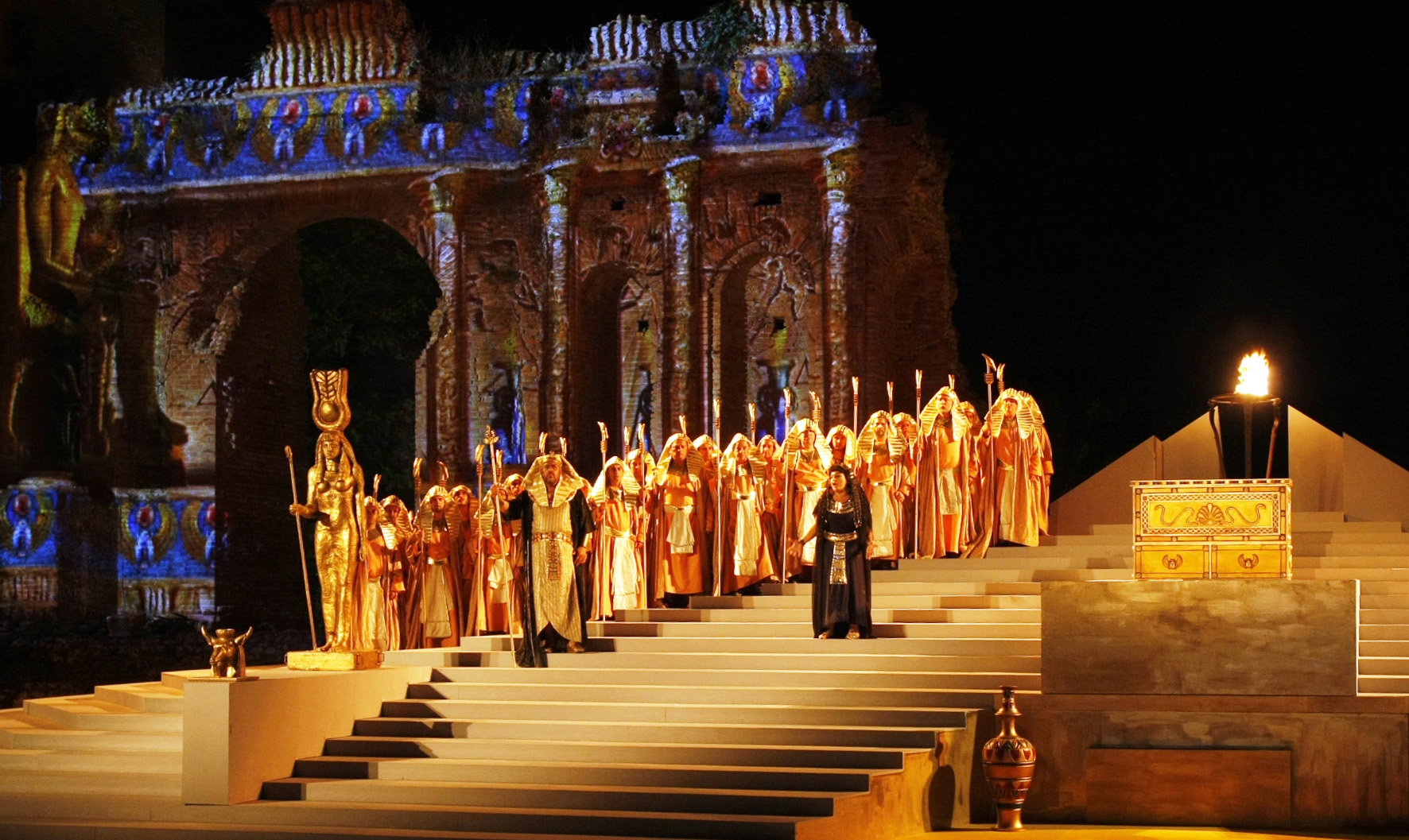Aida
Greek National Opera
by Giuseppe Verdi
Aida is mainly known for its triumphal march, an impressive page of magnificent, exotic music for ballet. The context in which it plays out also contributes to its popularity, which is to say in Pharaonic Egypt in a mythical era familiar to 20th-century audiences through its envisioning by Hollywood.
But this is just one aspect of Verdi’s Aida, and the least interesting. As in many of Verdi’s operas, there is a love triangle at its core: Aida, an Ethiopian princess and a prisoner in the Pharaoh’s court, is in love with the Egyptian general Radamès, who reciprocates her feelings, but this displeases Amneris, the Pharaoh’s daughter, who also loves him. At the very heart of the work, Aida is torn between her feelings for the man she loves and her duty to her father and her homeland.
The opera is presented by the Greek National Opera in a production from the celebrated Taormina Opera Festival. It is directed by Enrico Castiglione, the experienced Italian director known for his cinematic staging and realistic spectacles.
In Italian with English and Greek surtitles




